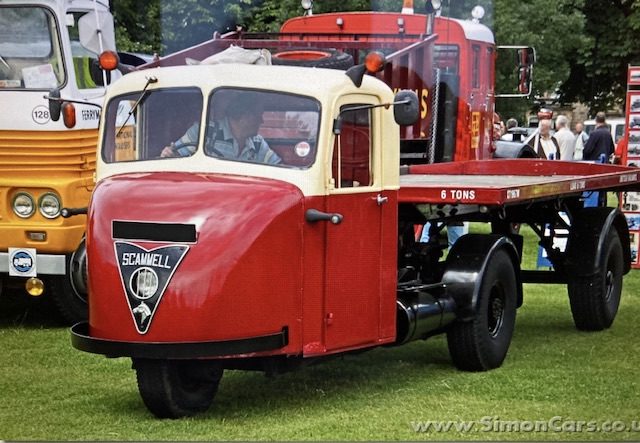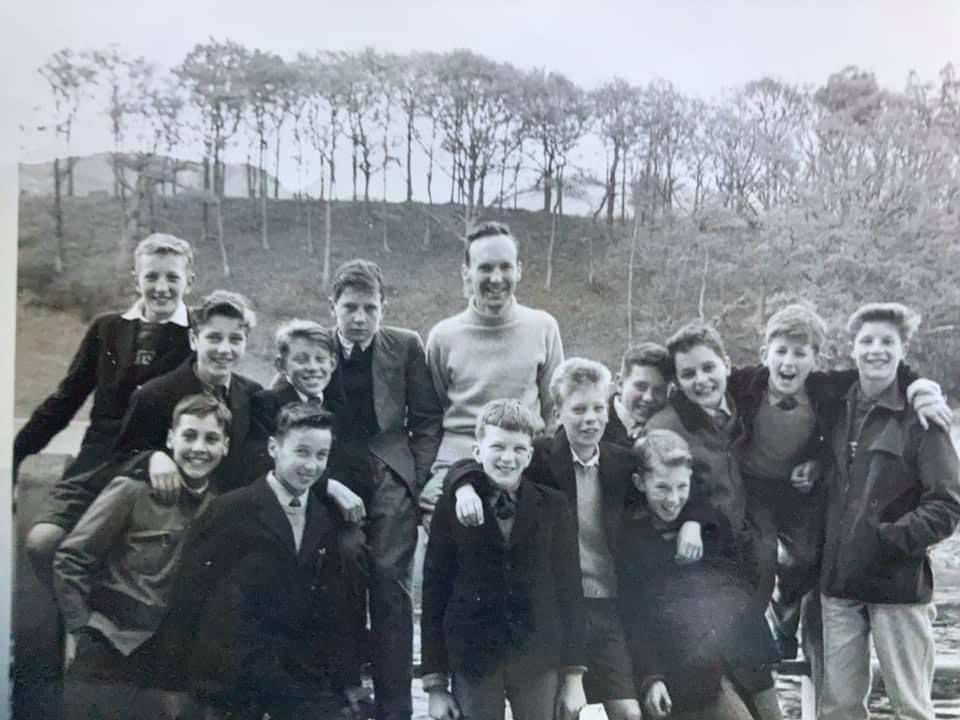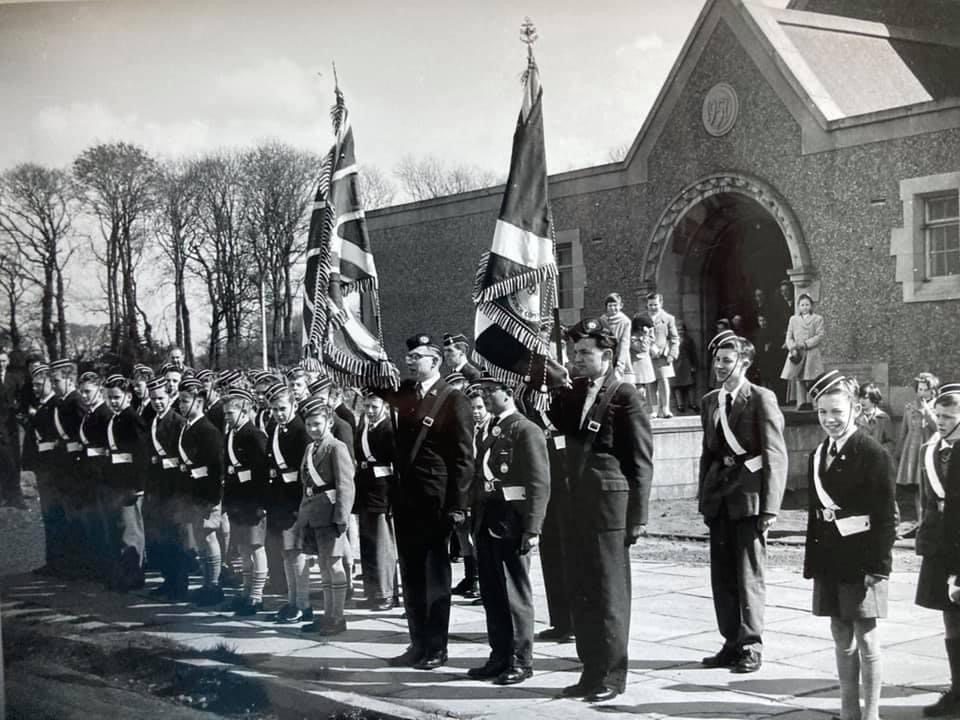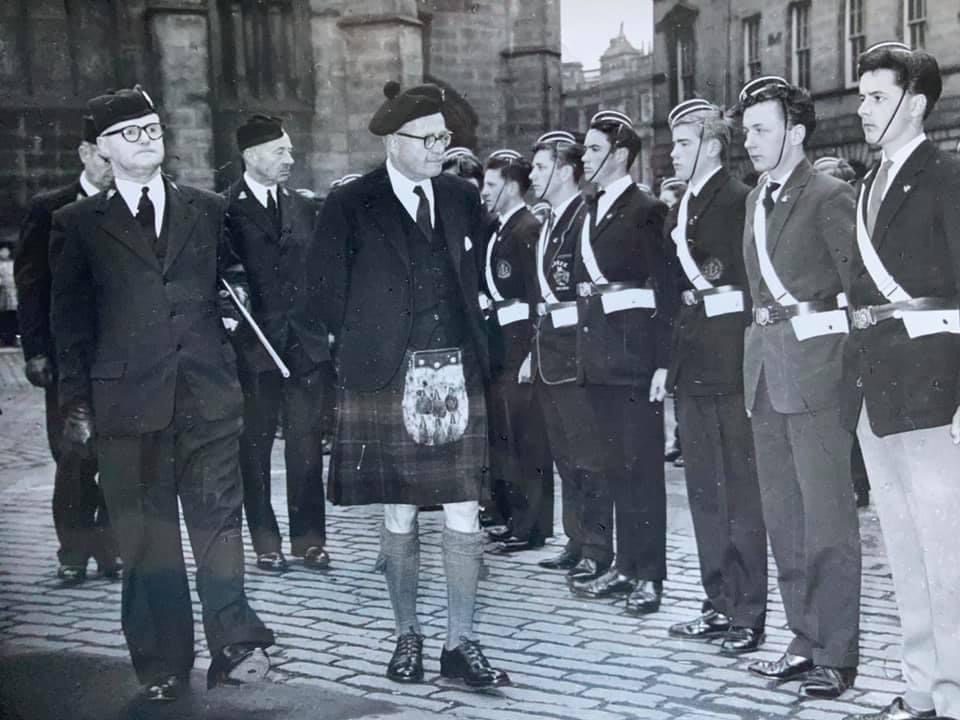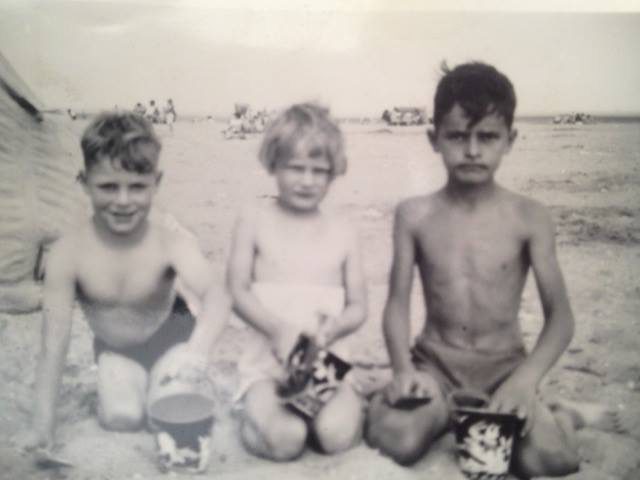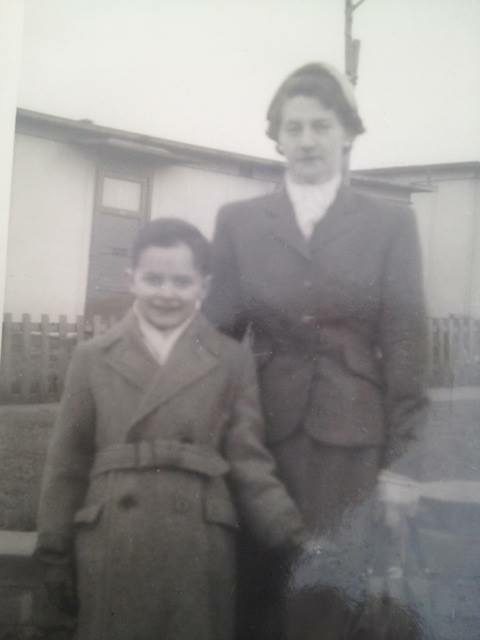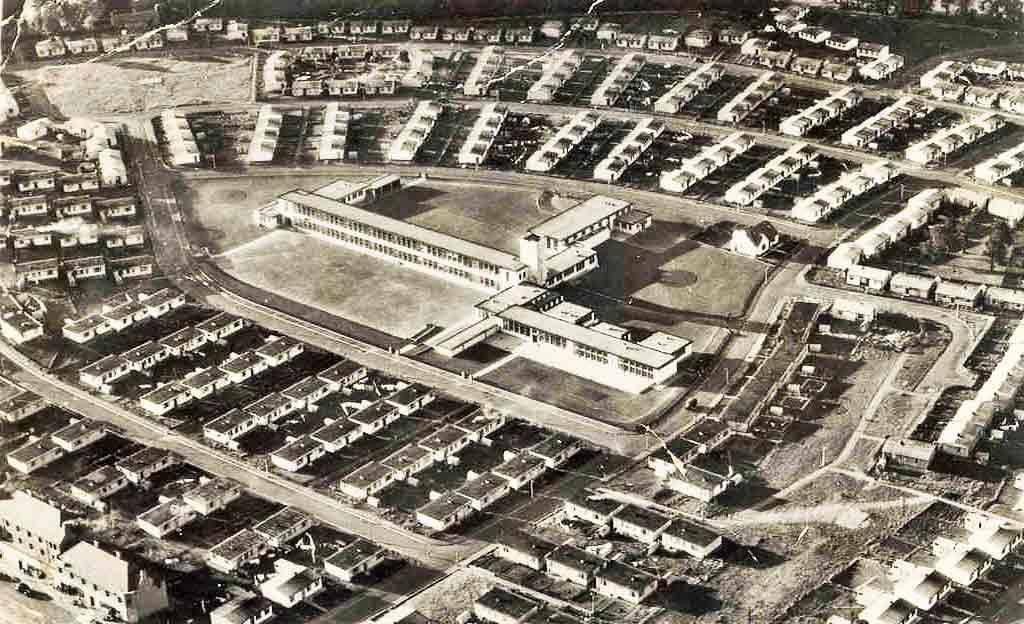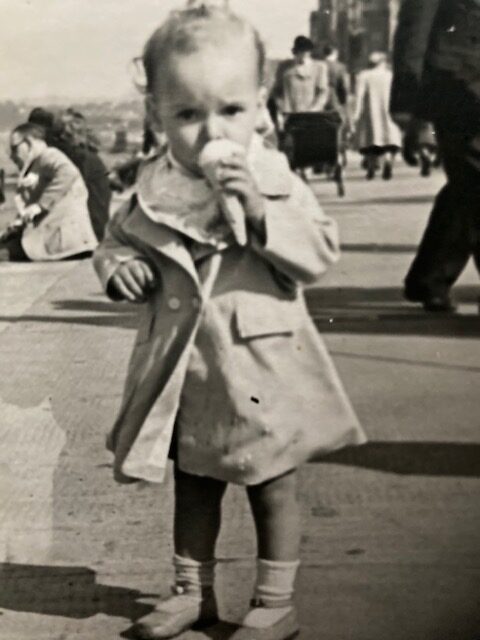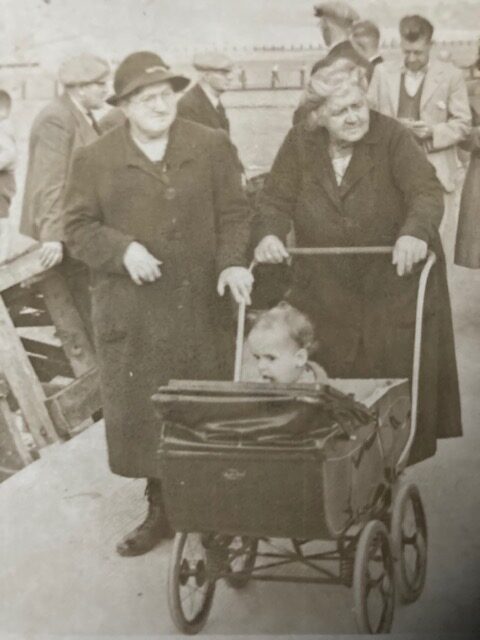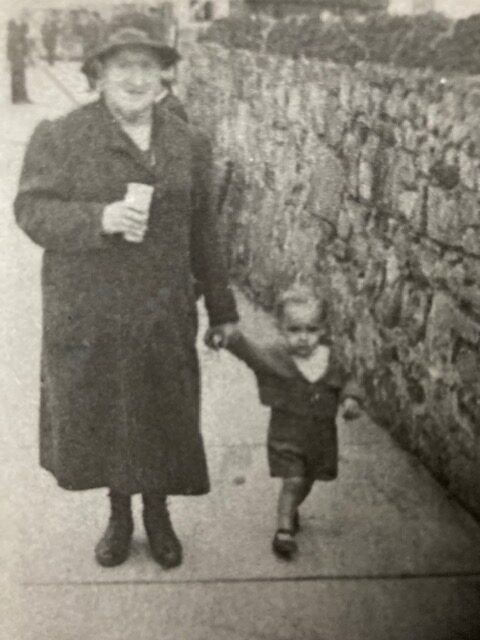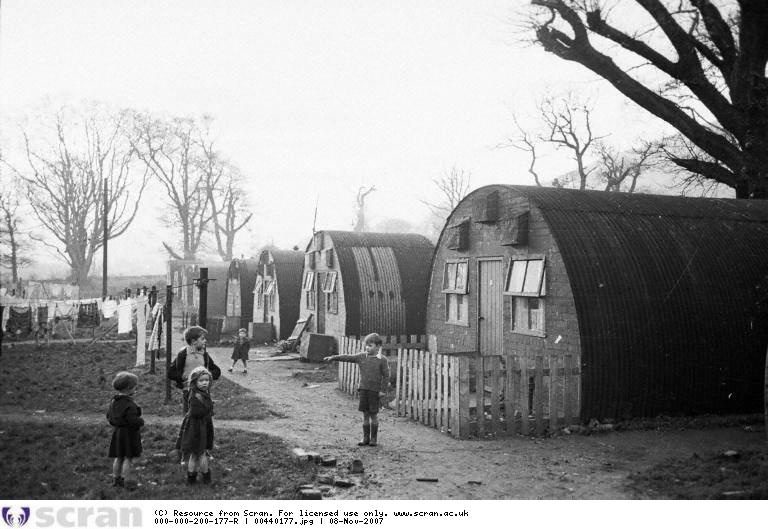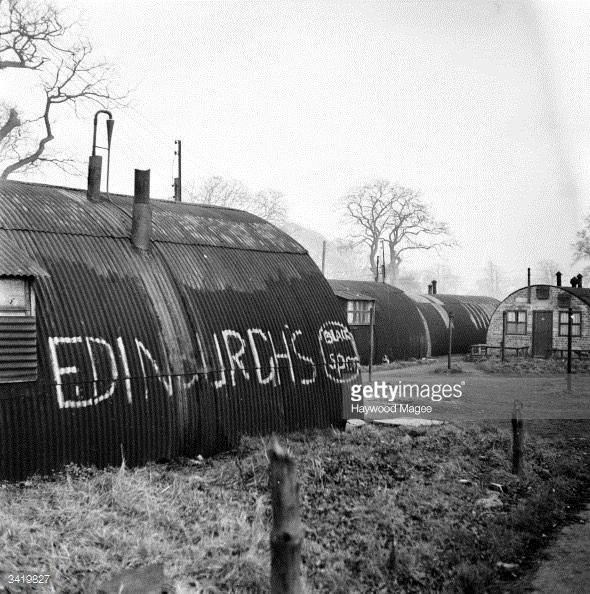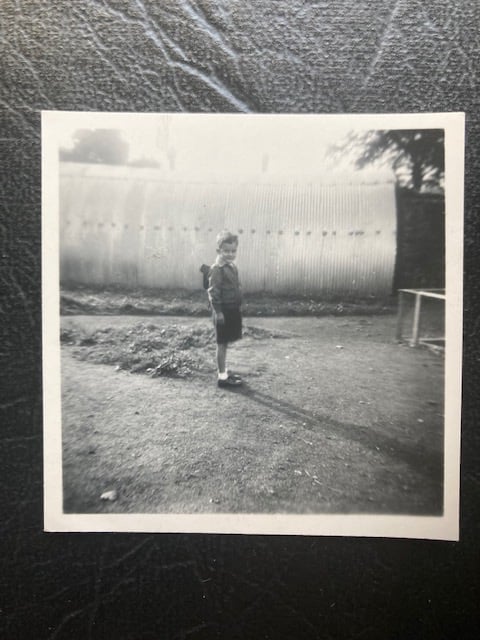Out of the Camp Ch. 24 – Out of the Camp
Flashback from 80s Saudi Arabia to post-war Edinburgh and my early years growing up in Auld Reekie.
On May 8, 1945, the War in Europe ended, then later that year on September 2nd, US President Harry S. Truman announced Japan’s surrender and with it, the end of World War II. Midway between these two dates, specifically in July 1945, I was conceived on an RAF airbase somewhere in Lincolnshire. I deduce the timing purely on arithmetical evidence since I was born nine months later in April 1946. Aside from the glaringly obvious, what happened on that airbase and activities immediately following confirmation that I was on the way, are shrouded in the mysteries of time which I feel certain, would be to the great satisfaction of my maternal grandmother. More on this later.
My earliest memories are of life in Duddingston Camp, Edinburgh, probably around 1948-49. We moved into our, 177 Duddingston Camp hut, when I was two years old, “we” being my parents and I since I was an only child and would remain so. Prior to this we had lived with my paternal grandmother in her Bridge Street Lane flat in Portobello, and I have memories of that single room, but I think these recollections are from visits, rather than from my time living there. It was also, probably as a result of my being taken care of by an elderly distant cousin, Jennie, who lived with my grandmother, and who was also a custodian of the swing park on Portobello Prominade. In addition, and also by default, she found herself babysitting more kids than she had bargained for. In those days people would just drop them off “at the swings” and Jennie would ‘keep an eye on them’. A simpler time, indeed.
The history of Duddingston Camp as far as I can determine is that it was a prisoner of war facility during WWII which ostensibly was used to house political prisoners and other enemies of Poland. It was run by the Polish army and, under the terms of an Act signed by both governments, was to be treated by Britain as sovereign Polish territory. When the war ended, however, the Poles all went home, the camp reverted to UK governance and, as there was a low-income housing shortage, a situation made worse by homecoming military personnel at the end of the war, the Camp was repurposed as emergency housing to accommodate these veterans and their families.
My father had served in India and Burma for many years both before and during the war with the KOSBs (King’s Own Scottish Borderers) and also the Royal Signals, and as such qualified for one of these homes. We moved the two miles from Portobello in 1948 when I was two years old. Memories are sketchy, of course, but I recall an occasion that I’m pretty sure was Hogmanay when the hut – one room remember – was packed full of people. I was in my cot in the corner of the room, and I remember a woman asking me to give her a kiss. I didn’t want to because I didn’t know her and naturally, on reflection, I assume she was wasted since, as I said, it was Hogmanay. Well, she was very persistent and didn’t let up until I burst into tears at which point a number of the neighbors told her to leave me alone. It’s a bit bizarre I’ll admit, that of all things I should remember that. Another incident, probably a few years later, where a workman who was with a maintenance crew working at the camp asked me to go and get him some cigarettes from a shop across the street. I was likely no more than five years old, and the shop was on a busy street, by late 40s/early 50s standards anyway and, of course, no one should be selling cigarettes to a child that age. Somehow, my mother got wind of this and went searching for this unfortunate dude to give him a piece of her mind.
I’ve posted some pictures of Nissen huts but, if you’ve never seen one, they’re like a long tunnel made of corrugated iron with a brick wall built halfway along the inside of the hut dividing it into two, and a brick wall at either end with a door in each to create two homes. So, in our home I slept in my cot in one corner by the back wall, with my parents by the wall on the opposite side. Diagonally opposite from me was the kitchen area with the sink below the window. The remaining layout of the room fades into a memory fog. One of the reasons I mention all of this was to highlight the absence of a bathroom or toilet, and reference what I thought would be the most serious scrape I’d get into while living in Duddingston. There was a much larger hut in the camp, housing communal toilet and bathing facilities that was looked after by Mr. Alway. I was always afraid of Mr. Alway because he always seemed to be angry, and whenever I had to go to the toilet, I’d try to avoid seeing him. Well, one day I was in there with a girl who was a neighbor and Mr. Alway walked in and caught us in the middle of a game of, “I’ll show you mine if you’ll show me yours!” not instigated by me I might add. Honest!! Remember now, we were four or five years old. Anyway, he yelled at us, told us both to pull up our pants and get out of there. He also said that he’d be talking to our Mums. He actually didn’t seem to be very angry and in fact, as we left, I thought I almost detected a twinkle in his eye that I hadn’t ever seen before.
Aside from being taken care of by Jenny down at Portobello Beach, my Mum occasionally took me to work with her at Mrs. McVicker’s house in Portobello where my Mum was the cleaner. I remember that Mrs. McVicker had a daughter, probably a teenager, who used to play with me and also there was a big fluffy cat who liked me to cuddle her. I also remember my Dad taking me with him to his job where he drove an articulated lorry for British Railways delivering parcels. Looking back, I remember it was a peculiar looking thing that had a cab with three wheels and a flatbed usually stacked with parcels that he’d drop off around the city. I found a picture of one on the internet, but I think the ones in Edinburgh were yellow. It’s strange the seemingly insignificant things you remember from when you were a child. For example, round the corner from my Granny’s house on Portobello High Street was a chocolate shop where I’d occasionally be taken and given a chocolate. I always thought that that lady was really, really nice and she had a great big smile and always made such a fuss of me whenever she saw me. I used to think I’d like to live there! I really don’t remember going to school when we lived in Duddingston but apparently, I did, judging by the picture I found taken by our hut on my first day. I know I didn’t go to kinder-garden, in fact I didn’t know anyone who went there because only posh kids went to kinder garden. But maybe that’s what we used to call nursery and, again, I don’t remember going but I have a vague sense that I did. There’s something scratching at the far reaches of my memory telling me that I did. If that sounds weird, I can’t disagree!
Anyway, we moved into a Moredun prefab when I was six and I thought it was really nice because I had my own room. One of the first things I remember after moving there was a lady from across the street trying to show my Dad how to light the pilot to make the gas fridge work. We’d never had a refrigerator. In fact, I didn’t know what a refrigerator was. Anyway, he got into a big argument with her, calling her daft, because how could lighting the gas make ice when obviously that would make it hot. This went on for quite a while and I remember her laughing and my Dad getting mad. Well anyway, they obviously moved past that because she became the first of many friends that we had in that immediate neighborhood and, looking back, I don’t think there was ever that sense of community again at any other place we lived.
I think there were around sixteen families in our particular stretch of Moredun Park Avenue, some with kids with whom I became friends, and others with none. Nobody locked their doors in those days and when neighbors dropped by, they would open the door and holler before walking in. This didn’t happen at our home however as my mother didn’t approve of this level of familiarity.
When I started school again, I went for a short time to a primary in Fernieside until the new Moredun Primary School opened and then I transferred there. My first teacher was Miss Bryson and I fell in love with her almost on sight. I suppose she must have been a new graduate and I would guess she’d be in her early to mid-20s and very pretty. It’s so hard looking back to estimate age when you’re so young because everyone above fifteen seems to be an adult. She had a very sweet nature and I know I wasn’t the only one who felt this way about her because there’s now a Facebook group for former pupils and the topic of Miss Bryson has come up more than once. It was very upsetting for all of us when her bearded boyfriend started to show up and burst all of our respective bubbles. The next outrage was when we got a new teacher. This was a cross, and at least to us, an old lady called Miss Dunlop who always wore wooly jumpers and long tartan skirts and used to screw up her face to slide her glasses back up her nose when they slid down. And they did that all the time. She obviously wore dentures because she was always moving them around in her mouth and playing with them with her tongue. She terrified me, especially when she taught arithmetic and later, algebra and geometry, because she got really angry if you couldn’t understand her and got all the sums wrong which I frequently did. What made it worse was that there was no one at home to help me as my Dad, now back in the army, was away working in St. Andrews University at the Officers’ Training Corps. and only came home some weekends, and my Mum couldn’t add up.
When I was nine years old, I joined the Life Boys, what they used to call the junior reserve of the Boys Brigade (BB). I didn’t know until I did some online research that the BB was the earliest of all youth organizations having been founded, of course, in Glasgow in 1883 by Sir William Smith. Robert Baden-Powell, later to be a ‘Lord’, was Vice-President of the BB and an early admirer of the organization and, 25 years later in 1908, formed the Boy Scouts to promote the idea of scouting and outdoors pursuits. He was awarded a knighthood in 1909 by King Edward VII. The Boy Scouts of America was founded the following year in 1910. My cousin, Jessie, probably around 15 years my senior was responsible for getting me into the Life Boys, and ultimately the BB, as she was an officer with a Life Boys company in Leith. The original objective of the BB was to combine drill and fun activities with Christian values. Badges were awarded for completing a variety of activities in the areas of Body, Mind, Spirit, Community and Creativity.
Also, when I was nine my mother told me I was adopted. You might not believe this, but I already knew! I knew instinctively because she wasn’t like any of the other mothers in the street. I’d see how my friends and their mothers related to each other and our relationship was nothing like theirs. She was really, really strict and was unable to demonstrate affection, in fact there was hardly any touching in our home. I heard Cathie Baird, Alan’s mother, who lived across the street tell Elsie Smith, next door that “that woman’s going to knock the spirit oot o’ that laddie!” My mother told me I’d been born at the end of the war, that my father had been a pilot in the Royal Canadian Air Force and was killed, and that my mother was English, but nobody knew what had happened to her. She also told me that it all had happened a long time ago and that I wasn’t to dare mention it again. She got her wish; nobody crossed my mother, until I married, that is. She hadn’t bargained on my future wife getting involved fifteen years later.
Images.
(1) Scamell 3-wheel articulated lorry as used by British Rail in the 50s & early 60s. (2) Boys’ Brigade camp somewhere. I see Top L-R ?, Bob Ledgerwood, Ian Braidwood, ?, Capt. Syson, ?, Jim Rodgers, me. Dave Peacock, ? Front: ?, Ronnie McDonald, ?, ?, Bert Peacock. If anybody can fill in any blanks please let me know. (3) Sunday Parade at the Tron Church, Moredun, late 50s or early 60s. (4) On parade at the General Assembly of the Church of Scotland, The Mound, Edinburgh. (5) My cousins, David & Iris, Portobello Beach, 1950s. (6) My mother and I in front of our Moredun prefab. (7) 1950s: Moredun Primary School surrounded by the prefabs of Moredun Housing Scheme (8) Jenny, my Great Aunt, and my paternal Grandmother strolling on the Prom with me in the pram. (9) Me enjoying an ice cream on Portobello Promenade, late ’40s. (10) Duddingston Camp. (11) Jenny & me on Portobello Prom. (12) Graffiti on a Duddingston hut. (13) Me, ready for school outside our hut.
